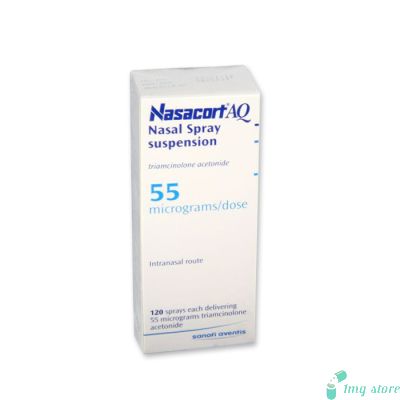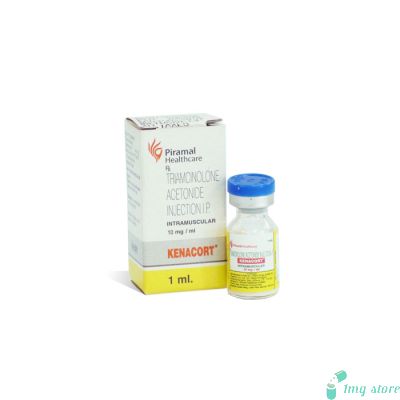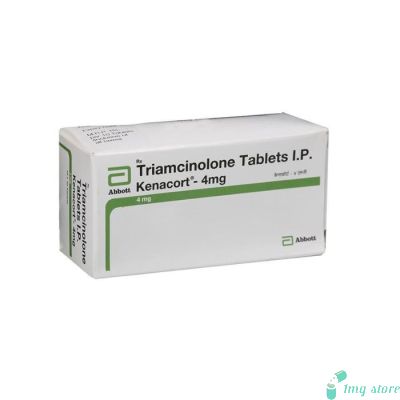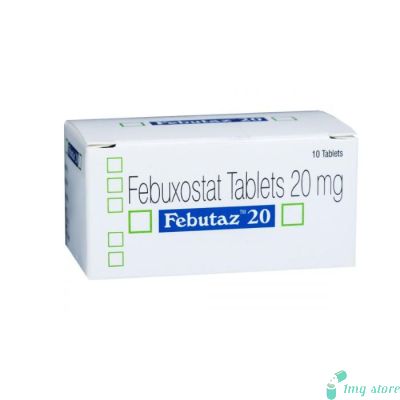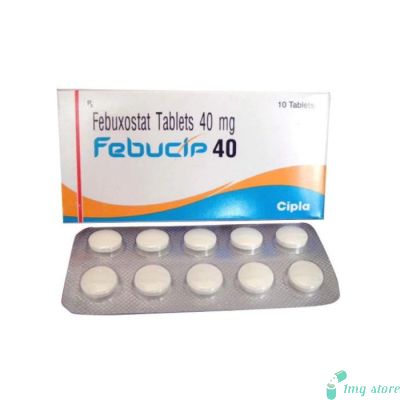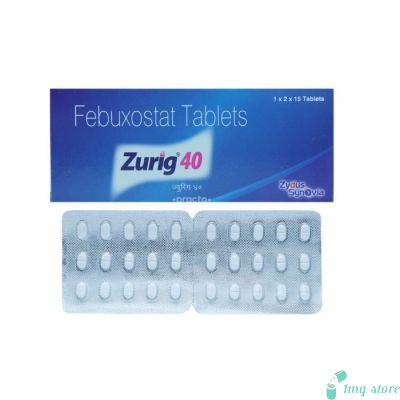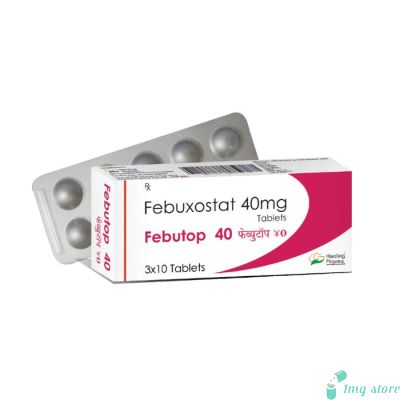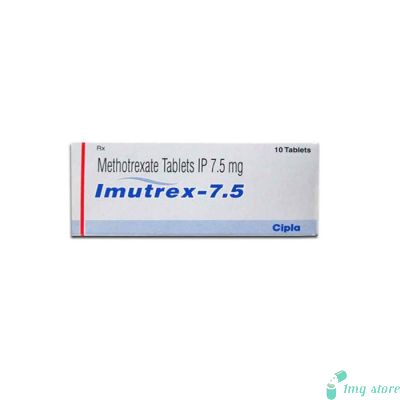Ledercort Tablet (Triamcinolone)
Triamcinolone belongs to a class of drugs known as glucocorticoids, which have potent anti-inflammatory and immunosuppressive properties. It is commonly prescribed to treat a wide range of medical conditions, particularly those involving inflammation and immune system dysfunction. Kenalog and Ledercort are the brand name for Triamcinolone.
Triamcinolone 4mg Tablets
Triamcinolone is a synthetic corticosteroid medication available in various forms, including tablets, creams, ointments, and injections. In this article, we will focus on Triamcinolone Tablets, a popular oral form of the drug. Triamcinolone belongs to a class of drugs known as glucocorticoids, which have potent anti-inflammatory and immunosuppressive properties. It is commonly prescribed to treat a wide range of medical conditions, particularly those involving inflammation and immune system dysfunction. It is also sold under the brand names Kenalog and Ledercort.
Dosage Information:
The dosage of Triamcinolone Tablets can vary depending on the condition being treated, the patient's age, weight, and overall health status. It is crucial to follow the prescribing doctor's instructions carefully and not to self-adjust the dosage without medical supervision. The tablets are usually taken orally with or without food. Below are some general guidelines regarding the dosage of Triamcinolone Tablets for specific conditions:
Allergic Reactions: For mild allergic reactions, a low dose of 4-8 milligrams (mg) per day may be prescribed. In more severe cases, the dosage can be increased to 12-16 mg per day. The treatment duration is typically short-term to avoid long-term side effects.
Inflammatory Disorders: In conditions such as rheumatoid arthritis, Asthma, or inflammatory bowel disease, the dosage can range from 4-16 mg per day. Initially, higher doses may be given to control symptoms, which are later tapered down to the lowest effective maintenance dose.
Skin Conditions: For Skin Disorders like eczema or psoriasis, a low to moderate dose of 2-16 mg per day may be prescribed. Topical forms of Triamcinolone are often preferred for localized skin conditions to minimize systemic effects.
Immune System Disorders: In some autoimmune conditions like lupus or multiple sclerosis, higher doses of 16-48 mg per day may be required during acute exacerbations. However, these higher doses are not recommended for prolonged use due to the risk of severe side effects.
Joint Injections: Triamcinolone/Kenalog can also be administered directly into inflamed joints. The dosage for joint injections is much lower than oral doses and usually ranges from 2.5-40 mg depending on the joint's size and severity of inflammation.
Children: Children may require lower doses based on their weight and age. The prescribing doctor will determine the appropriate dosage for pediatric patients.
Buy Triamcinolone Tablet:
At 1mgstore.com, you can conveniently purchase Triamcinolone Tablets online. We offer a reliable platform to buy genuine medications with home delivery options. However, before making any purchase, we advise consulting a healthcare professional to ensure proper dosage and suitability for your specific medical needs.
Essential Safety Advice to Follow When Using Triamcinolone Tablet/Kenalog
- Medical History: Before starting Triamcinolone Tablets, patients should inform their healthcare provider about their complete medical history, especially if they have a history of diabetes, glaucoma, osteoporosis, hypertension, peptic ulcers, tuberculosis, or any other infections. This information is crucial for the doctor to determine the appropriateness of the medication and the required dosage.
- Pregnancy and Breastfeeding: Triamcinolone Medication should be used with caution during pregnancy and breastfeeding. The potential risks and benefits must be carefully assessed by the healthcare provider before prescribing this medication to pregnant or breastfeeding individuals.
- Immunizations: Live vaccines should not be administered to patients taking Triamcinolone/Kenalog Tablets due to the risk of vaccine-related infections. Non-live vaccines may have reduced efficacy in individuals on immunosuppressive therapy, and the timing of vaccinations should be discussed with the doctor.
- Infections: Triamcinolone can weaken the immune system, making patients more susceptible to infections. It is essential to avoid contact with individuals who have contagious infections like chickenpox or measles, as the consequences can be severe for immunocompromised individuals.
- Surgery: Patients scheduled for surgery should inform their surgeon and anesthesia team about their Triamcinolone use. The medication may need to be adjusted or temporarily discontinued before the procedure to reduce the risk of complications.
- Psychiatric Disorders: Triamcinolone can cause mood changes, anxiety, and depression. Patients with a history of psychiatric disorders should be closely monitored while on this medication.
- Diabetes: Triamcinolone can elevate blood sugar levels, so diabetic patients should closely monitor their blood glucose levels and may need adjustments in their diabetes medications while using Triamcinolone.
- Osteoporosis: Long-term use of corticosteroids like Triamcinolone can weaken bones and increase the risk of osteoporosis. Patients should ensure adequate calcium and vitamin D intake and consider bone density monitoring.
- Growth and Development: Children on prolonged Triamcinolone therapy may experience growth delays. Regular monitoring of growth parameters is essential in pediatric patients.
Some of the specific indications for Triamcinolone Tablets/Kenalog include
Triamcinolone Tablets have a broad spectrum of medical uses due to their potent anti-inflammatory and immunosuppressive effects. Some of the primary uses of Triamcinolone Tablets include:
- Triamcinolone Tablet for Allergies Reactions: Triamcinolone/Kenalog can be prescribed to manage allergic reactions, such as allergic rhinitis, allergic dermatitis, or contact dermatitis. It helps reduce inflammation and suppresses the immune response responsible for allergic symptoms like itching, redness, and swelling.
- Inflammatory Conditions: Triamcinolone is highly effective in treating various inflammatory disorders, including Rheumatoid Arthritis, systemic lupus erythematosus (SLE), and inflammatory bowel disease (Crohn's disease and ulcerative colitis). By suppressing inflammation, it alleviates pain, swelling, and stiffness associated with these conditions.
- Respiratory Conditions: Asthma, a chronic respiratory condition characterized by airway inflammation and bronchoconstriction, can be managed with Triamcinolone Tablets. It helps reduce airway inflammation, making breathing easier for asthma patients.
- Skin Disorders: Triamcinolone can be used to treat skin conditions like eczema, psoriasis, and allergic reactions causing skin inflammation. Topical forms of Triamcinolone are often used for localized skin conditions, while oral tablets may be prescribed for more severe or widespread cases.
- Immune System Disorders: In certain autoimmune diseases like systemic lupus erythematosus (SLE) or multiple sclerosis, where the immune system mistakenly attacks the body's tissues, Triamcinolone helps suppress the immune response, reducing the severity of symptoms and preventing organ damage.
- Joint Inflammation: For patients with joint inflammation due to conditions like Osteoarthritis or rheumatoid arthritis, Triamcinolone can be administered directly into the affected joint, providing targeted relief.
- Organ Transplants: Triamcinolone is sometimes used in transplant patients to prevent organ rejection. It is part of the immunosuppressive therapy administered post-transplantation to ensure the body does not attack and reject the newly transplanted organ.
- Cancer-related Uses: In cancer treatment, Triamcinolone can be utilized to alleviate inflammation and manage side effects associated with chemotherapy, such as nausea, vomiting, and allergic reactions.
Crucial Side Effects to Be Observed When Using Triamcinolone/Kenalog Tablets
- Gastrointestinal Effects: Nausea, vomiting, indigestion, and increased appetite are common gastrointestinal side effects.
- Weight Gain: Triamcinolone/Kenalog can cause fluid retention and weight gain, particularly with long-term use or at higher doses.
- Mood Changes: Patients may experience mood swings, irritability, anxiety, or depression while taking Triamcinolone.
- Insomnia: Difficulty sleeping or changes in sleep patterns may occur.
- Skin Changes: Thinning of the skin, easy bruising, and delayed wound healing can be observed.
- Increased Blood Pressure: Triamcinolone can cause hypertension, and blood pressure should be monitored regularly.
- Increased Blood Sugar: Elevated blood glucose levels can occur, especially in individuals with diabetes.
- Osteoporosis: Long-term use of Triamcinolone can lead to decreased bone density and an increased risk of fractures.
- Cataracts and Glaucoma: Prolonged use of Triamcinolone may increase the risk of developing cataracts and glaucoma.
- Suppression of the Immune System: Triamcinolone can suppress the immune system, making patients more susceptible to infections.
- Adrenal Suppression: Prolonged use of high doses of Triamcinolone can suppress the adrenal glands, leading to adrenal insufficiency when the medication is stopped abruptly.
- It is essential to report any new or worsening symptoms to the healthcare provider promptly. In case of severe or life-threatening reactions like difficulty breathing, severe allergic reactions, or signs of adrenal insufficiency (e.g., weakness, fatigue, dizziness), seek immediate medical attention or call emergency services.
Frequently Asked Questions (FAQs) about Triamcinolone Tablets:
Can Triamcinolone Tablets be used to treat seasonal allergies like hay fever?
Yes, Triamcinolone Tablets can be prescribed for hay fever and other allergic conditions. They help alleviate symptoms such as sneezing, runny nose, and itching caused by allergic reactions.
Are there any specific foods or beverages to avoid while taking Triamcinolone/Kenalog Tablets?
There are no specific dietary restrictions with Triamcinolone Tablets. However, alcohol consumption should be limited, as it can increase the risk of gastrointestinal side effects.
Can I stop taking Triamcinolone Tablets if I feel better?
No, you should not stop taking Triamcinolone abruptly without consulting your doctor. Sudden discontinuation can lead to withdrawal symptoms and may cause a relapse of the underlying condition. Follow your doctor's instructions for tapering off the medication.
Can Triamcinolone Tablets interact with birth control pills?
Triamcinolone may reduce the effectiveness of hormonal birth control methods, such as oral contraceptive pills. It is advisable to use additional contraceptive measures while on Triamcinolone therapy to prevent unintended pregnancies.
Can Triamcinolone Tablets be used to treat eczema in children?
Triamcinolone Tablets are generally not recommended for pediatric eczema treatment due to potential side effects. Instead, topical forms of Triamcinolone are preferred for localized skin conditions in children. Always consult a pediatrician for appropriate treatment options.
Some notable drug interactions with Triamcinolone Tablets include:
Triamcinolone Tablets can interact with other medications, altering their effects or increasing the risk of side effects. Patients must inform their healthcare provider about all the medications, supplements, and herbal products they are taking.
- NSAIDs (Nonsteroidal Anti-Inflammatory Drugs): Concurrent use of Triamcinolone with NSAIDs can increase the risk of gastrointestinal bleeding and ulcer formation.
- Anticoagulants: Triamcinolone/Kenalog may decrease the efficacy of anticoagulant drugs like warfarin, leading to an increased risk of blood clots.
- Aspirin: Concurrent use of aspirin and Triamcinolone can increase the risk of gastrointestinal bleeding.
- Vaccines: Live vaccines should not be administered to individuals on Triamcinolone, as they may cause serious infections.
- Antifungals and Antibiotics: Some antifungal and antibiotic medications can interfere with the metabolism of Triamcinolone, leading to increased levels of the drug in the body.
- Immunosuppressants: Combining Triamcinolone with other immunosuppressive drugs can lead to an increased risk of infections and adverse effects.
- Diabetes Medications: Triamcinolone can alter blood glucose levels and may require adjustments in diabetes medications.
It is essential for healthcare providers to be aware of all medications a patient is taking to avoid potentially harmful interactions.
| Manufacturer | : | Pfizer Ltd |
| Equivalent Brand | : | Kenalog |
| Generic Search | : | Triamcinolone |







